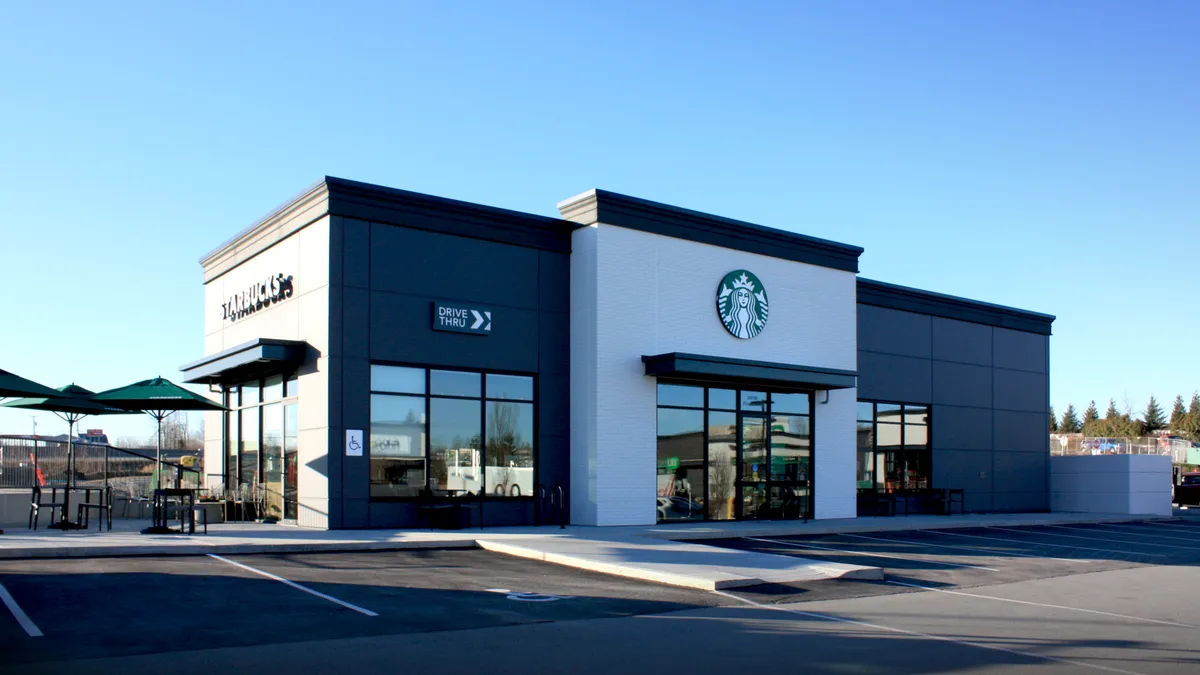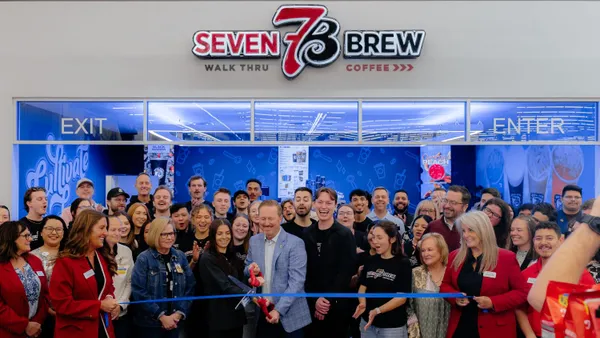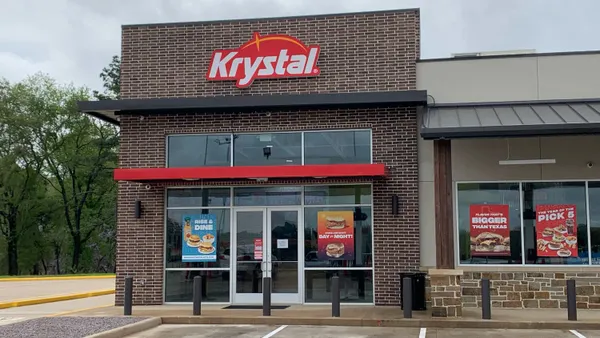Dive Brief:
- Furthering its global sustainability strategy, Starbucks recently built a drive-thru location in Canada using an energy-efficient modular system with near-zero construction waste.
- Designed, manufactured and constructed by Vancouver-based Nexii Building Solutions, the store in Abbotsford, British Columbia, was assembled and built in six days, according to a Starbucks news release. It is set to open within the next few months.
- The coffee retail giant has employed modular building techniques in the past, including stores made out of used shipping containers. Its sustainability program, which includes a commitment to LEED certification for its stores, aims to cut its carbon, water and waste footprints in half by 2030.
Dive Insight:
Nexii recently released plans for its first U.S. production facility, located in Hazleton, Pennsylvania. Once fully operational this spring, the plant will be able to produce more than 8 million square feet of building panels a year for projects in Northeast U.S. markets.
The company recently raised $33 million in its fourth round of funding. Its board of directors include F. William McNabb, former chairman and CEO of investment management company Vanguard and Ronald Sugar, chairman of Uber Technologies and board director at Apple.
An alternative to cement and concrete, the company's roof, floor and wall panels create a thermally efficient, airtight envelope, Nexii CEO Stephen Sidwell said in the release. The insulated panels are coated on both sides with a material the company calls Nexiite, which is made of sand and other "readily-available" materials, he told On-Site magazine, creating a building system that is waterproof and fire resistant.
"The Nexiite is both the interior and exterior finishing and is structural," Sidwell told On-Site. "So, it’s a completely different methodology of construction."
Other restaurant brands have also embraced modular building as way to cut costs, shave construction time and lower their carbon footprints.
Late last year, Chick-fil-A opened its first restaurant built with a modular construction process, with help from Conyers, Georgia-based modular builder Frey-Moss Structures. The brand’s Roswell, Georgia, restaurant was completed in 12 weeks, much shorter than the 23 weeks that an average "scrape and rebuild" project on a Chick-fil-A location can take, the company said. The fast food chain expects to introduce additional modular building projects this year, it said.
Starbucks' and Chick-fil-A's new store designs are part of a larger push among QSRs to build restaurants that are more eco-friendly. McDonald's, for example, finished construction on its first net-zero energy restaurant near Disney World last summer. The store is designed to create enough renewable energy to cover all of its annual energy needs, and will allow the chain to test ways to reduce water and energy use.















